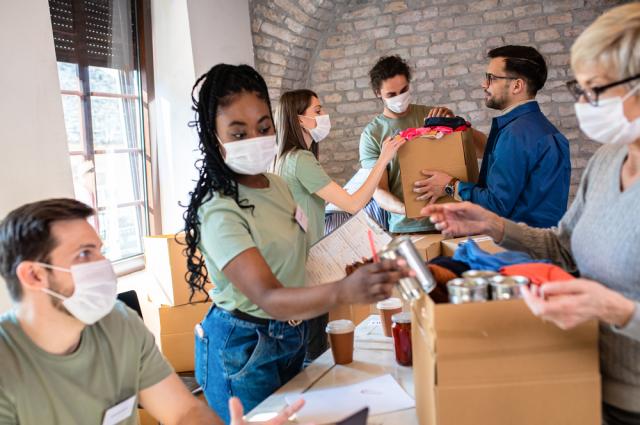
Welcome to the first ever WAMS blog. We’re trying something that’s new for WAMS, so we hope you enjoy embarking on this adventure with us. And that you’ll share your thoughts with us! Your feedback is always welcome.
On my desk there’s a square metal block that was a gift to me from a colleague. It makes an effective paperweight, but it helps me hold a thought down in my mind, too, because it says something I want to remember: “No act of kindness, no matter how small, is ever wasted.”
That’s true for multiple reasons. There’s the experience we’ve all had of watching a kind act be passed along, then along again, and on and on. One day years ago in a Dunkin’ Donuts drive up line, I got to the window and went to pay for my iced tea (and something much less healthy, like hash browns), and the window server said, “The person ahead of you paid for your order.” I didn’t know the person ahead of me, nor could I even say thanks. So, of course, I paid for the order of the stranger behind me. And I’m pretty sure that driver did the same. And so did the next. And the next. And in those few minutes a whole bunch of people smiled, because their days had started off with good surprises, and they had happy stories to take to work and home.
I’d bet that like me, most of those people have started new kindness chains like that one from time to time, so just think of the multiplier.
And then there’s the one individual, isolated, act of kindness that can stick with you. A few years ago I took a hard fall onto pavement when I was carrying a large box down some stairs and caught my heel. I hit my head pretty hard and was bleeding. As I lay there waiting for the ambulance, someone I never really saw, except for her feet, went to her car, got a blanket, and covered me, saying, “Don’t worry – Keep the blanket.” She disappeared into the building, and as far as I know, I’ve never seen her again. But I kept the blanket, and every once in a while, I touch it and remember that act of kindness.
A small, kind gesture can make a difference in someone’s day. The young cashier at a local market recently was ringing up the order of a tired and stressed-looking older woman, when the cashier suddenly said, “Your hair is so beautiful. I love the silver color.” The customer’s whole demeanor changed. She stood up taller, smiled broadly, chatted energetically, and was still smiling when she went out the door.
And then there are acts like helping to dig someone’s car out of a snowbank, or stopping to talk with a Salvation Army bell ringer while you’re putting money into the bucket, or telling new parents who are shopping with a fussy baby how beautiful their child is.
But guess what – These everyday acts of kindness are not just good for the recipients; they benefit the people who make the kind gestures.
And we’re not even touching upon huge gestures of unselfishness, like giving someone else a kidney.
Science, it seems, tells us we’re wired to help others and that doing it is good for us. Observations of babies show they help other babies reach for things and share what they’re holding. They’ve been observed opening cupboard doors for each other (Their parents may or may not think that’s a good idea!). These babies were too young to have been taught to do good deeds or to worry about what others would think of them. They show what we might call the simplest altruism: disinterested concern for the wellbeing of others. The babies get nothing in return. Doing the kind acts is the goal in itself. They’re too young to be reaching for the prizes some grownups love. No baby in the world cares about its reputation or wants the key to the city, unless it’s good to chew on.
Some research has shown that altruistic acts stimulate certain “reward” areas of the brain. People have described increased senses of well-being because of acts of kindness.
We’ll talk about the physical health benefits of doing good another time, but let’s just enjoy for now the fact that gestures of kindness make us feel good, so they’re a win-win for us and for the objects of our good deeds. Isn’t that awesome?
As the Dalai Lama says, “Be kind whenever possible. It is always possible.”